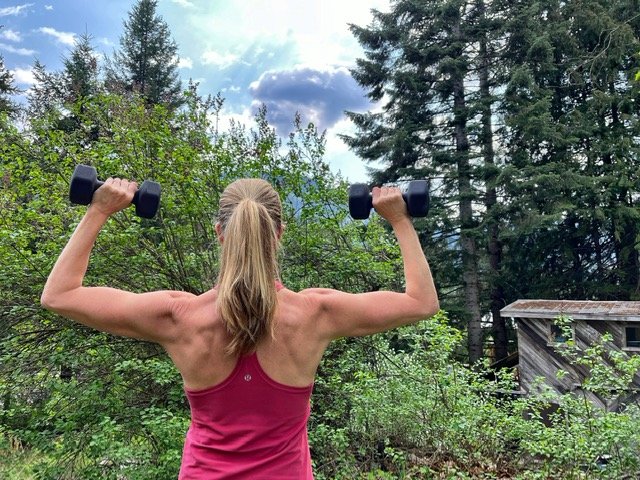One of the many things we tend to forget as humans and individuals, navigating the challenges of our current world, is that we are never actually powerless. Yes, there are natural disasters and governmental guidelines, heart breaking devastation amongst capitalism, poverty, division, racism, and climate change issues that are often out of our control, but as individuals, we are NEVER powerless.
There are ALWAYS ways that we can help,
ALWAYS little things we can do,
And we are ALWAYS in control of how we behave and respond to the endless barrage of worldly issues.
I am no expert on environmental barriers and complications, but I do know a few things about health. Fundamentally, at the root of so much that we do, how we respond, whether we take action towards helping or hindering issues & events, how we handle anxiety & stress & heart break, is HOW HEALTHY we are in mind & body. The more stable we are with our health, the more stable we will be in our reactions, decisions, and how we manage ourselves forward despite the many hurdles that are set before us.
Let’s face it: challenging times aren’t going anywhere. We cannot simply wait out the storms, as more storms are on their way. What we CAN do instead, is work on being our most resilient, strong, powerful, and stable selves, so that we can take on whatever comes our way with resilience and integrity.
Here are some of my favourite ways to look after your health, particularly at a time when we are looking for a fresh start, such as a New Year:
Building Resilient Health in Mind & Body
Tune Inwards:
I can’t say this enough. Listen to that inner voice, the inner guide that knows what works for you & what doesn’t, that understands when you need rest or to step back from something, and knows deeply when something’s not right. We have so many of our own answers (although many of us spend years searching for them) WITHIN, the work then is to figure out how to listen and interpret the signs & signals. Practice mindfulness, presence, deep breathing, meditation, yoga, and simply spending the time to listen.
Daily Gentle Detox:
Rather than launching on a restrictive detox plan this NY, consider implementing some daily gentle detox strategies that can be mainstays for your health consistently. Good quality water intake, leafy greens, cruciferous vegetables, sprouts (broccoli sprouts in particular), blue-green algae/spirulina/chlorella, a whole foods vitamin/mineral formula, and regular movement to encourage sweating, are all easy and effective ways to encourage those detoxification pathways to do good work and process excess toxins. If you’re looking for more guidance with your getting your health back on track in 2026, Join my Post Holiday Health Reset Here!
Include More Plants:
I’ve been at this Nutrition thing for over a decade now and it seems no matter what angle you come at it, what book you read, what webinar you take, time and time again, the resounding research dictates that the best form of absorbable nutrients comes from plants. The more plants you can consume in your day to day diet, the more accessible nutrients the body will receive; the more accessible nutrients the body receives, the better able it is to function, the more support you will have for organ function, blood circulation, detoxification pathways, digestive function, brain function, mental health, less aches & pains, better sleep, and more energy. Include as many plants in the diet as possible, of all varieties, and as in season and organic, as possible. Bonus: they are delicious!
Exercise & Movement:
Never stop moving. Period. No matter whether or not you are limited due to injury or pain, there are so many varieties of movement that we can take advantage of to keep the body in motion, to work & strengthen the muscles, to aid with recovery, to attribute to agility & coordination, to encourage a positive mindset, and, perhaps the most important of all, to support mental health. Find something that makes you feel good, joyful, happy & strong, and do that. If going to the gym isn’t your thing, no problem, find something that is! Just MOVE regularly, daily, and aim to include both cardiovascular and strengthening exercise.
Mind Stress Levels:
Just as we’ve discussed staying present and tuned in above, keeping close tabs on your stress levels is one of the master keys to thriving health. As soon as our stress levels rise above what is manageable or what feels balanced, those heightened levels of stress hormones begin to affect the workings of everything else in the body: digestion, sleep, heart rate, fat storage & metabolism, mental health, energy levels, motivation, and greatly contribute to anxiety & depression. Pay attention to where the majority of your stress comes from and make assessments to keep those levels in check: notice when they are beginning to shift, notice triggers, notice your mood shifts and behaviours, implement stress reduction strategies to help cope (yoga, breathing, meditation, walks, time off, sleep), and take your stress levels seriously, as long-term stress is at the root cause of many (if not all) degenerative diseases.
Prioritize Passion:
It is passion in life that makes us feel alive, lit up, and motivates us to share our joy and our spirit. Keeping passion alive in your life is as important to your health as what you eat, how much you move, and how stressed you are. Don’t ever let your passionate side fall the wayside, it deserves to be front & centre in your life and will guide you towards being your best and most whole self. Trust me. If you have lost your passion, spend some time trying to find it again - retreats are great for this, workshops or creative classes, self-work classes or therapy can help, also meditation and/or time away from work. What I often ask my clients who struggle to find their passion is this: what lights you up and makes you feel joyful? what did you used to do that you don’t do anymore and wish you did? what do you watch others do that makes you feel as though you’d love to do that too? Be curious. Don’t ever discount your passionate self, you deserve passion, we all do.
If you’ve made it to the end, I hope you’ve found some inspiration here to take you into a New Year with more resilience and presence.
If you are looking for help with any of these topics, feel free to REACH OUT and find out more on how we can work together to get you feeling more resilient this NY!






